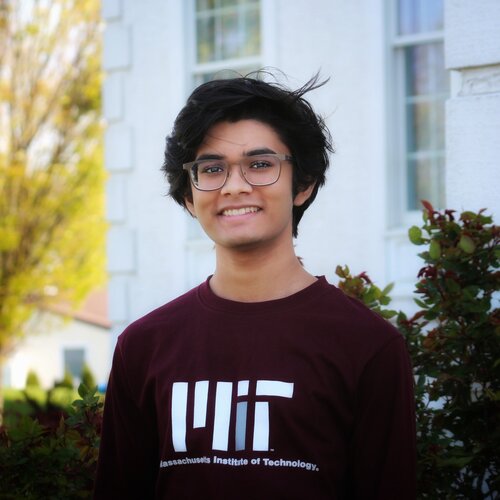(February 9, 2023) When he was 14-years-old, Neil Deshmukh wanted very much to keep his little brother out of his room and away from his Nintendo DS. He decided to build a face-recognition device that could recognise the difference between him and his brother and unlock the door accordingly. His ‘tinkering’ led to an app to help blind users identify objects, read texts and navigate their environment through AI. There has been no looking back since. Neil is the winner of the BioGENEius Challenge Award for his contributions to AI-driven healthcare and the Gloria Barron Prize 2019 for PlantumAI, an app to help farmers in developing countries identify and treat crop disease. He was also featured by TIME Magazine.
“I was just tinkering,” he said, in a Tedx talk in 2020. “I had no idea that trying to get my brother to stop stealing my stuff would launch an entrepreneurial programme in the technology capital of the world.” The true power of the AI algorithms, he worked with, only hit him when he was testing his app to aid blind people. When it was time to test the AI, one of Deshmukh’s teammates asked a volunteer from the audience to throw an object from across the room. A soft toy came flying at the stage, Neil recalls. The app took a picture instantly, saying, “soft toy on a tiled force.” At that moment, the young Global Indian understood the power of the technology he held in his hands.
BayMax to structure healthcare
In 2019, Neil bagged the BioGENEius Challenge Award for the BayMax, a device to help “augment doctors around the world.” Having seen relatives in India struggle with access to healthcare, Neil wanted to be part of the solution. Although the World Health Organisation recommends a doctor-patient ratio of 1:1000, many underdeveloped countries come nowhere near the ideal number. This includes parts of India, which Neil has seen firsthand.
It inspired him to build BayMax, an AI healthcare system that automates medical analyses to make it more efficient for doctors to conduct their treatment. “They can go to an area with a complete list of analyses for every patient,” he says.
The device, which costs around $150, conducts a diagnostic baseline assessment. It takes five minutes to complete a myocardio, EKG, cognitive and symptomatic analysis and identify anomalies for easy treatment by doctors. The information is then stored in a file that ranks them based on level of risk. “It’s an AI-powered triage system,” Neil explains.
“One problem right now is that there is no way a single doctor can cover so many people. It’s a flip of the coin approach that decides who gets diagnosis and treatment.” This way, doctors can access complete patient lists upon arrival and treat those who are high-risk right away. The device works with a touch-screen that requires minimal interaction with the patient. “They put the clamps on for the EKG, tap the ‘heart’ button and it does the work. It uses the neural network on the device to conduct the analysis and runs it on the Raspberry Pi processor.”
PlantumAI
Built in app-form, Plantum AI helps farmers in developing countries identify and treat crop disease. It is aimed at allowing farmers to maximise yields, reduce the need for toxic pesticides and ensure a safe supply of food and water. The app uses AI tech and crowdsourced data that lets farmers process crop information. And all it requires is a photograph taken on their phone camera. It also runs offline, so it can be used with ease in remote areas.
Again, Neil was inspired by a trip to India, taken back in 2016. When he visited his grandfather’s farm, he learned how farmers are at the mercy of weather conditions and that they spray their crops with a pesticide cocktail to prevent disease. This was leading to the pollution of water bodies and groundwater as well. The app took Neil one year to develop and was field tested by plant pathologists at Akola Agriculture University in India.
“My interest also came through my robotics team in middle school,” Neil said in an interview. “A lot of my projects since have been about developing solutions for underserved populations detecting earthquakes with smartphones and healthcare that is driven by AI.”
The future of AI
Neil’s work has also made him sought after by companies around the world that are seeing to implement AI systems. “When I started out, AI sounded insane to 14-year-old me,” he said. “And it was only when I was testing my app to help the visually-impaired that I truly began to realise the true power this technology held.” He works with media companies and agricultural societies, giving them expertise on how to implement these systems and utilise AI efficiently.
Neil’s extensive work landed him seats at the top universities, including Caltech and MIT. He chose the latter, where he is currently a sophomore. In his free time, he enjoys being part of various clubs, cycling and unwinding through sport.
- Learn more about Neil Deshmukh’s work on his website


